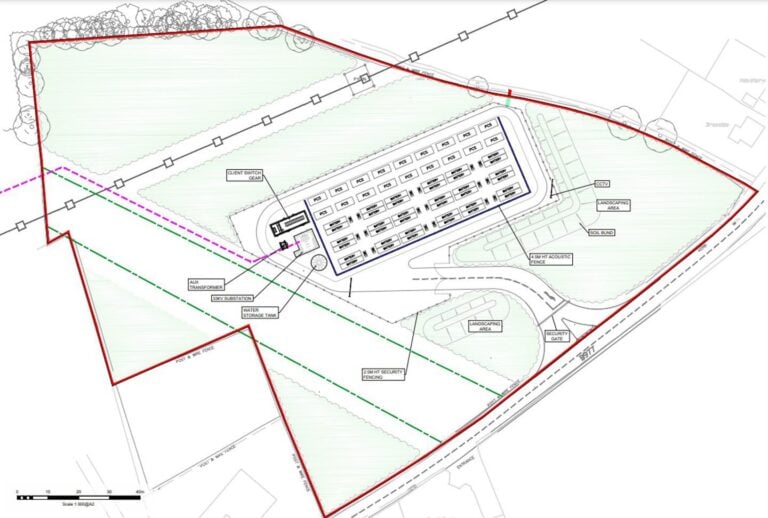Despite public objections, planning permission has been granted for a battery energy storage system (BESS) near Kintore in Scotland.
XRE Gamma and Scala Renewables Group were granted development consent for the 49.9 MW development, which will consist of 36 batteries, 18 battery integration units and associated works to connect these to a local substation.
The proposals were met with significant opposition, with Aberdeenshire Council receiving 51 letters of objection from the local community. Many residents were concerned about the potential impact on wildlife and the ability of local emergency services to respond to a possible fire or chemical leak. Kintore and the District Community Council also expressed fears over fire safety, as well as drainage and flooding.
Things were delayed when Scottish and Southern Electricity Networks (SSEN) asked Transmission to amend landscaping plans to prevent damage to the 132kV overhead line, which runs across the site.
According to local reporting from the Press & Journal, Representatives of developer XRE Gamma and agent Scala Renewables were able to allay the council members’ concerns. They confirmed that XRE Gamma was aware of locals’ concerns about fire risk and pledged to provide local firefighters with additional training and equipment to tackle any potential fire. can take place on site. This includes drawing up a detailed fire safety plan in collaboration with the local fire brigade.
Meanwhile, Sharon Queeney of Scala Renewables noted that the project could strengthen the region’s green credentials, stating: “By endorsing this project, Aberdeenshire can demonstrate its commitment to creating a robust, low-carbon, safe and flexible system. ”
This isn’t the only recent development to face a backlash from the community, with some others having their planning permission refused.
Proposals for a 30MW solar farm just outside Salisbury, Wiltshire, were recently rejected by Wiltshire Council due to concerns over the lack of grid connection detail in project plans, which one councilor called ‘crazy’.
Environmental concerns surrounding the nearby River Ebbe and the location of 50% of the project on the best and most versatile agricultural land were also cited as reasons for the rejection.


